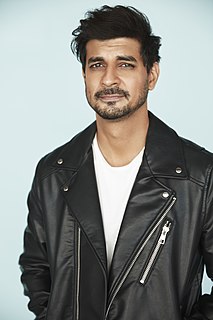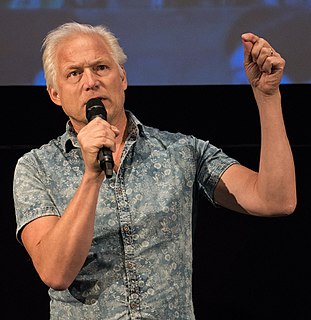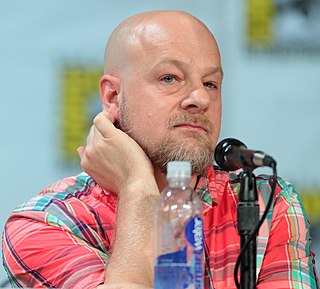A Quote by Kevin Pollak
I think it's important that your first film be your worst film, that one's life trajectory should go up.
Related Quotes
Your first film is always your best film, in a way. There's something about your first film that you never ever get back to, but you should always try. It's that slight sense of not knowing what you're doing, because the technical skills you learn - especially if you have a film that works, that has some kind of success - are beguiling. The temptation is to use them again, and they're not necessarily good storytelling techniques.
I was at one of the lowest points of my life when we started this film [Dream of Life], except, of course, that I had two great children. But the film is not documenting a decline; it's documenting a rise up - first baby steps and then big steps up. The worst that could have ever happened to me had already happened. And so the film is on the ascent. And I think that gives it a nice spirit.
If I hear a film clip, or I happen to see some image from a film - you go to a film festival, and they show some clip of the movies you've been in, most of the time I sit there and go, "Oh God, I should have... should have... that was terrible." But I think that's a natural part of this work, because really, your work is never over. Of course I can leave it alone and walk off the set and never think about it again when it's done. But your work is really ongoing all the time.
When you're making a film, you don't really have time to consider what the whole of your film is. And then, when you're releasing your film and promoting your film, you're looking at it in a different way. Then, as you move away from it, you start to look at it objectively and think, 'What could I have done better?'
I got into film in an odd way - when I was 17 years old I participated in a Swedish film as an actor. I think every person at that age should get a role in a film, because during that time you want acceptance, and when you have a role in a film you become an important person. I think about that now, and that was my fantastic starting point.
If you make a film, that magic is not there, because you were there while shooting it. After writing a film and shooting it and being in the editing room every day, you can never see it clearly. I think other people's perception of your film is more valid than your own, because they have that ability to see it for the first time.



































